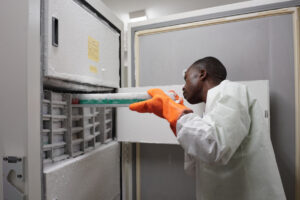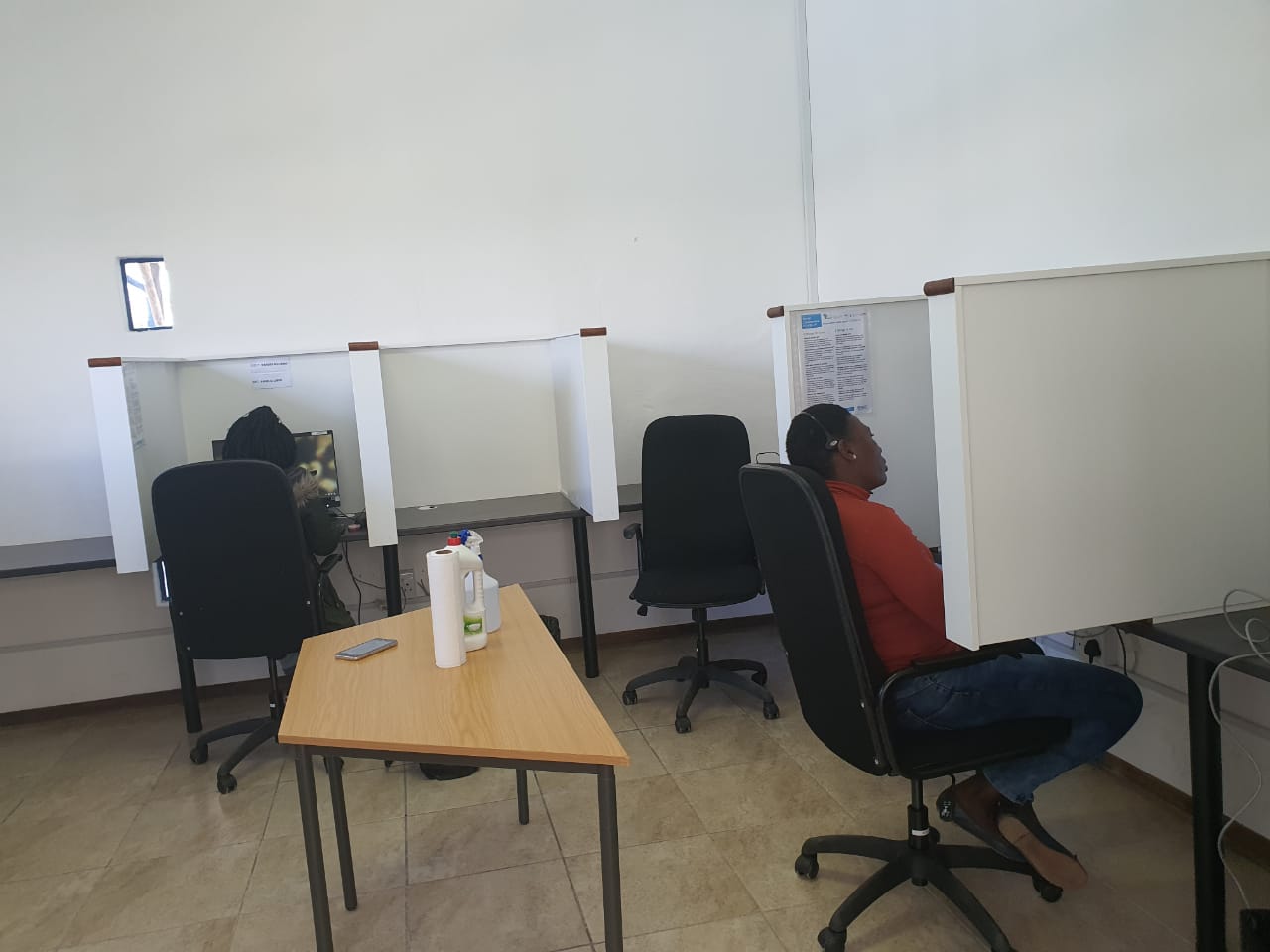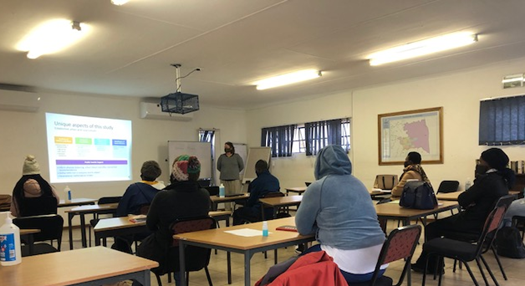SAPRIN COMMUNITY SURVEILLANCE – EXTENDING THE UPDATE TO INCLUDE A COVID-19 MODULE AND CAPITALIZING ON ABILITY TO CONDUCT TELEPHONIC SURVEYS
Events IN 2020 and 2021 have forced us to reconsider how our primary data-driven science is carried out, particularly in cases where data was primarily collected through in-person interviews. The MRC/Wits-Agincourt Research Unit undertook telephonic data collecting using the recently established, cutting-edge contact center at alleviate the probable data gap caused by the Covid-19 epidemic and lockdown. Three interconnected projects are currently underway:
- The Covid-19 Intensive Surveillance
- The Telephonic Verbal Autopsy
- SAPRIN Census (teleVA)

SAPRIN CENSUS
The South African Population Research Infrastructure Network (SAPRIN) is an institution tasked with collecting national population data. As one of SAPRIN’s rural nodes, the MRC/Wits-Agincourt Research Unit contributes population data on demographic events (namely births, deaths, in-migrations and out-migrations), as well as socioeconomic data on education and employment status. The data gathered from Agincourt, as well as SAPRIN’s other rural and urban nodes, contributes to a better understanding of South Africa’s population which can inform responses to pressing issues. The 2020 SAPRIN census is unique from previous rounds in two ways: it is entirely telephone based, and it involves a Covid-19 Screening Module. This screening module includes all individuals currently residing in the study area and is documenting household socioeconomic impacts of Covid-19, as well as Covid-19’s effects on the psychological wellbeing of individual respondents. The module also contains a screening tool for symptoms suggestive of Covid-19.
COVID-19 INTENSIVE SURVEILLANCE

The Covid-19 Intensive Surveillance, which started with 1159 participating households, selected households with individuals considered more vulnerable to Covid-19. This took into account Covid-19 projections of possible widespread dissemination of the virus nationwide, risk of significant morbidity and mortality in vulnerable populations, and strain on both the healthcare system and economy. A nationally coordinated system of disease surveillance is critical to effective prevention, control, and response to the Covid-19 epidemic and to rapidly detect transmission geography and allocate scarce prevention and intervention resources to areas of highest need. The MRC/Wits-Agincourt Research Unit is thus one of three rural-based surveillance platforms contributing to South Africa’s Covid-19 surveillance data.
The Covid-19 Intensive Surveillance project collected data from sampled households and individuals at 10-14-day intervals. The individual-level screening component identified research participants presenting with Covid-19 related symptoms, and these are referred for further screening by a dedicated project nurse who will determine whether referral to a clinic for testing is required
TELEPHONIC VERBAL AUTOPSY
The Telephonic Verbal Autopsy (teleVA) is a subset of the annual population surveillance and seeks to collect detailed information about the sociodemographic and disease profile of the deaths collected from the census. This year’s instrument has an added Covid-19 component which is aimed at establishing potential Covid-19 effects on mortality. This is important in identifying mortality cases attributable to Covid-19.

Call centre agents at work in the MRC/Wits-Agincourt Unit state-of-the-art call centre
HUMAN SCIENCES RESEARCH COUNCIL – COMMUNITY SURVEY
We are glad to report that the Agincourt HDSS is proving its adaptability to respond to this crisis. In March, South Africa had no data on the possible rural impact of COVID-19. The MRC/Wits-Agincourt Research Unit responded to this worrying gap by working with the Human Sciences Research Council (HSRC) and the South African Population Research Infrastructure Network (SAPRIN). Taking advantage of our existing infrastructure and experience in telephonic surveillance, a study was completed with over 1300 participants randomly selected from our existing HDSS database, and sought to investigate awareness of COVID-19 symptoms and preventive measures, as well as the impact of South Africa’s national lockdown. The data contributed to a national study. The data contributed to a national study.
VAPAR COVID-19 COMMUNITY CONSULTATION
100 key stakeholders such as health care workers, home based carers, participants in a project focused on public involvement in health care decision making, educators and community leaders were interviewed about their experiences since South Africa’s lock down, and this will form the basis of a report highlighting rural voices, to be used to guide further health service planning and research.
SUPPORTING COMMUNITY HEALTH SYSTEMS
We knew that we had to urgently help the Mpumalanga Province’s COVID-19 response by intensifying public engagement activities, appointing a full time medical doctor to lead the Bushbuckridge sub-district COVID-19 Response in Research & Development Strategy, and seconding another doctor, the Head of Public Engagement and other staff to augment this effort. Agincourt worked with local authorities and community groups; the three hospitals and 40 clinics in the sub-district and the community screening teams. Data from the HDSS and the existing clinic link project was leveraged to assist service providers with making decisions about the health and social response to the pandemic.
RECORD-LINKAGE OF HEALTH FACILITY REGISTRIES WITH THE AGINCOURT HEALTH AND DEMOGRAPHIC SURVEILLANCE SYSTEM (HDSS) DATABASE


Building on our partnership with the National Institute for Communicable Diseases (NICD), we have embarked on data collection from individuals from the Agincourt health and socio-demographic surveillance system (HDSS) who seek care from the hospitals serving the subdistrict, namely, Matikwane, Mapulaneng and Tintswalo. Our current focus is on those presenting with respiratory conditions and any other chronic disease. This is an extension of our ongoing population-clinic link project, where we have been collecting data since 2014 from patient records of all those seeking care in the eight public sector clinics within the Agincourt HDSS. Working with an NICD team led by Prof Cheryl Cohen, we will augment data collected through the population-clinic link system with more focus on data collection of pneumonia and influenza-like illnesses in these eight clinics and the three hospitals. This will allow the well-functioning population-clinic link system to comprehensively assess the burden of illness including respiratory conditions and co-morbidities. Given COVID-19 and the potential rising burden on secondary and tertiary care, this will allow fuller understanding of patient linkage-to-care from community-to-clinic-to-hospital, their health outcomes, and the effects of interventions. The collection of data in the hospitals is initially funded for 3 months (May-July 2020) by a grant from the University of Edinburgh.
MONITORING SARS-COV-2 COMMUNITY TRANSMISSIONS WITH PHIRST-C
As the COVID-19 epidemic continues to grow in South Africa, the MRC/Wits-Agincourt Unit, working closely with the National Institute of Communicable Diseases (NICD), has begun implementing the second round of the PHIRST study, with additional work on SARS-CoV-2, so the study name is now PHIRST-C. PHIRST-C stands for “A Prospective Household study of SARS-CoV-2, Influenza, and Respiratory Syncytial virus community burden, Transmission dynamics and viral interaction in South Africa. It aims to characterize the community burden (including the clinical features) and transmissibility of SARS-CoV-2 within the context of a functional antibody response through frequent testing of study participants. In addition, it will assess the effect of the interaction of SARS-CoV-2 with influenza and respiratory syncytial viruses on disease severity and transmission dynamics. We will conduct a household-level prospective cohort study from an early stage of the epidemic in the Agincourt health and socio-demographic surveillance site in rural Mpumalanga and in urban Klerksdorp in the North West. The study will be conducted for 6 months from July-December 2020 with post-study follow-up continuing for a further 12 months.
This study will provide essential information on the natural history of the virus that will impact decisions on optimal strategies for the containment and mitigation of the current and potential future epidemics of SARS-CoV-2 locally, regionally and globally.

PHIRST C fieldwork training in the MRC/Wits Agincourt field offices
Members of the MRC/Wits-Agincourt Unit staff have already undergone rigorous training in COVID-19 safety and prevention and are excited to get into the field. We look forward as a Unit to adding meaningful contributions to the global COVID-19 response.
